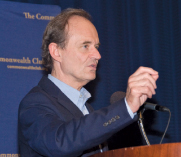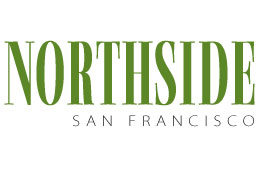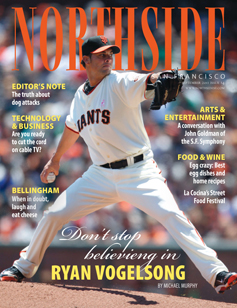If you listened to the lawyer who helped get Proposition 8 declared unconstitutional, the recent court decision showed up the weakness of the pro-Prop 8 arguments. They all fell apart on the witness stand where evidence needed to be given and where facts needed to be stated under cross-examination. Of course, he’s hardly an uninvolved observer, but he does know what he’s talking about.

Attorney David Boies explains his
winning legal strategy for beating
Proposition 8
photo: Beth Byrne
Attorney David Boies was elated when he came to speak at San Francisco’s Commonwealth Club last month. Boies was in town for the American Bar Association meeting, which he was due to address a few days later. But his speech at the Club, which had been planned for months, took place just one day after Proposition 8 was ruled unconstitutional by a federal judge, handing Boies and his legal team a huge victory. (Later, Boies joked about the lucky timing, telling the person who scheduled the speech that he should take her to Vegas to capitalize on her luck.)
It was an unlikely bipartisan team of lawyers headed by Democrat Boies and Republican Ted Olson who challenged Proposition 8. Boies worked in the Clinton administration’s Justice Department and represented Al Gore in the 2000 election case Bush v. Gore. The other half of this odd couple, Olson, was the country’s solicitor general during the George W. Bush administration and represented Bush in Bush v. Gore. If those two lawyers could become a legal dream team, we might just see Pat Robertson marching down Market Street in next year’s pride parade.
When Boies came to San Francisco, of course he got a very sympathetic audience. What viewers of the video of his Commonwealth Club speech don’t see is what happened before the cameras started rolling: When Boies walked into the packed auditorium, the audience gave him an enthusiastic standing ovation. He got another one after he finished his prepared remarks.
But the event probably would not have attracted nearly the same number of people – nor the enthusiasm – if the day before there hadn’t been a historic ruling issued by U.S. District Court Chief Judge Vaughn Walker. The judge’s ruling that Proposition 8 – the voter-approved initiative that rescinded the right to same-sex marriage in the state – was unconstitutional kicked the gay marriage debate into higher gear. Or brought it significantly closer to conclusion, if Boies is correct.
“The whole point of a constitution is to say there are certain rights that the majority does not have the right to take away from a minority,” Boies declared.
At the beginning of the trial, Boies and Olson promised to prove three things: first, marriage is a fundamental right; second, depriving gays and lesbians of the right to marry seriously harmed them and the children they were raising; and third, permitting gays and lesbians to marry could not in any way harm any other citizens – including by undermining heterosexual marriages.
“We proved every one of those things,” Boies said. The first one was easy to prove, he said, because the U.S. Supreme Court already ruled on it. For the second point, Boies-Olson brought in experts from around the world to give evidence about the benefits of marriage to people’s lives and the adverse effects on households where their children can’t marry. For this point, the defendants proved to be a big help to the plaintiffs. “On cross-examination,” said Boies, “even the witnesses that the defendants chose, prepared and brought into court ended up admitting that depriving gay and lesbian citizens of the right to marry seriously harmed them and seriously harmed their children.” On the third point, more witnesses were brought in to argue that same-sex marriage didn’t harm male-female marriages.
Boies noted that the United States is now sadly lagging behind other countries (including Mexico and Argentina) in expanding legal equality to all of its citizens. But that also means that he has more fodder for his case because he was able to draw on other countries and states where same-sex marriage is already legal; his experts were able to argue that marriages in those places were if anything strengthened after legalization of same-sex marriages. “Even the defendants’ own chosen experts admitted they had no evidence – none – that allowing gay and lesbian marriage could in any way harm heterosexual marriage or the institution of marriage,” said Boies, adding with pleasure, “And yesterday the court found that as a fact.”
“The other side doesn’t have any precedent, it doesn’t have any facts, doesn’t really have any experts,” he said. “They’ve got a bumper sticker.”
After an audience Q. and A., Boies received his third standing ovation of the evening. According to his prediction, the case will go to the U.S. Supreme Court sometime in 2011; then we’ll see if he gets a fourth standing “O.”
John Zipperer is vice president of editorial and media at The Commonwealth Club of California, www.commonwealthclub.org. E-mail: johnz@northsidesf.com








